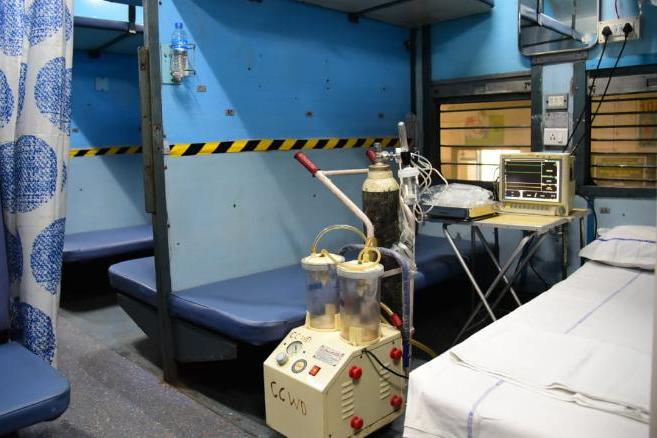This website uses cookies so that we can provide you with the best user experience possible. Cookie information is stored in your browser and performs functions such as recognising you when you return to our website and helping our team to understand which sections of the website you find most interesting and useful.

India’s railway network has announced it will convert trains into hospitals to house coronavirus patients after all passenger services were suspended at the end of March.
Indian Railways has said it plans to convert as many as 20,000 train carriages into isolation wards, complete with curtained-off beds, a nurses’ station, doctor’s cabin and space for medical supplies and equipment.
Each carriage can accommodate 16 patients.
The first 5,000 isolation wards are due to be rolled out in two weeks, according to Rajesh Dutt Bajpai, executive director of information and publicity at the Railway Board.
“Preparing to Combat Coronavirus: In a novel initiative, Railways has converted train coaches into isolation wards for COVID-19 patients,” tweeted Piyush Goyal, India’s Minister of railways and commerce and industry.
“Now, Railways will offer clean, sanitised and hygienic surroundings for the patients to comfortably recover.”
Once converted, the train carriages will travel to places in need of extra beds across Indian Railways’ network of 7,349 stations and 67,368km of track.
India was already struggling with low medical capacity before the pandemic hit, with just 0.5 beds per 1,000 residents on average.
These are also unevenly distributed, with cities much more likely to have increased capacity and equipment compared to rural areas.
By comparison, in 2017, the UK had an average of 2.54 hospital beds per 1,000 people, a number that’s half what it was 30 years ago, according to the King’s Fund. Japan has the highest number of beds, boasting just over 13 per 1,000 people.
“We have seen what China has gone through,” virologist and CEO of the Wellcome Trust/DBT India Alliance, Shahid Jameel, told CNN.
“It is imperative to increase this density, by whatever means in the shorter term, and more systematically in the longer term, once this outbreak is over.”
The new train wards will not service as fully functioning hospitals, but will used to treat Covid-19 patients who are not critically ill.



 Africana55 Radio
Africana55 Radio 

